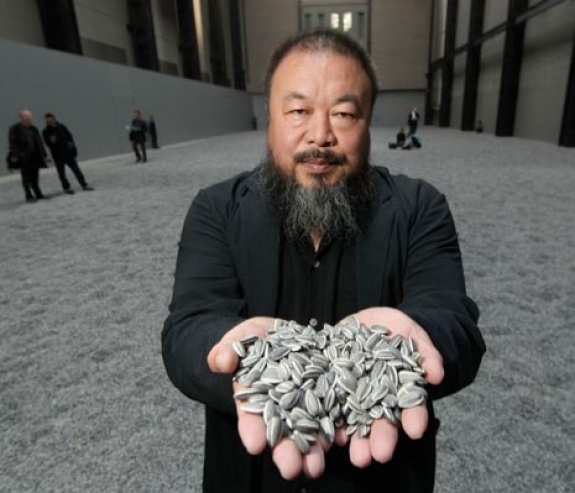On Wednesday, Chinese dissident Ai Weiwei, a painter detained on April 3, was released on bail after confessing to tax evasion. According to Ai’s lawyer, the charges were just an “excuse” to silence his client — in 2009, Ai had unflinchingly criticized China’s communist regime, asking, “If you aren’t anti-China, are you even human?” in an online forum. But three months in jail could lead Ai to be less visibly anti-China. After all, Ai is just one in a long line of artists who have dabbled in politics and suffered the consequences. How have other notable aesthetes responded to oppression?
Michelangelo (1475-1564): Even in the face of occasional disapproval from the Catholic Church, the Renaissance master championed a shockingly erotic style. When Florence fought and expelled the ruling Medici family in 1527, Michelangelo came to his city’s aid, helping fortify against invasion. This proved a bad bet: After Florence fell to the family in 1530, a Medici governor under Pope Clement VII ordered the artist’s assassination, forcing him into hiding. Later forgiven for his political sins, Michelangelo completed the sensuous “The Last Judgment” at the Sistine Chapel in 1541, a fresco commissioned by Pope Clement himself.
Fyodor Dostoevsky (1821-1881): Dostoevsky’s involvement with a radical, anti-czarist St. Petersburg literary group brought him the unwelcome attention of Czar Nicholas I, who sentenced him to death in 1849, then commuted the sentence just as the author was to be shot. Dostoevsky became an ardent nationalist, embracing deeply Orthodox Christian and Russophile beliefs that shaped his most prominent works, such as “Crime and Punishment” and “The Possessed.” His time as a political prisoner turned his focus from political ideology to the spiritual angst of “The Brothers Karamazov.”
Oscar Wilde (1854-1900): Five years after he published his bleak novel “The Picture of Dorian Gray,” the great Irish dandy was sentenced to two years of hard labor in 1895 for homosexual behavior. The experience forever changed Wilde. After serving time, he published “De Profundis” and “The Ballad of Reading Gaol,” both lamentations darker than “Dorian Gray” and as depressing as “The Importance of Being Earnest” was buoyant.



